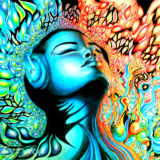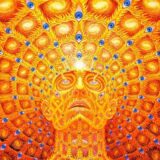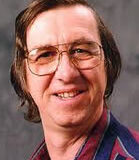What Is Psychonautic Activity And What Do Psychonauts Do?
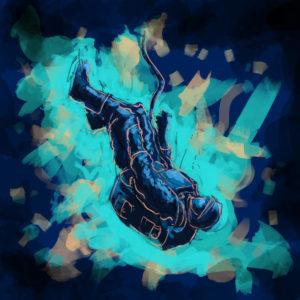
Define Psychonaut And Who Is Considered a Psychonaut?
There are many definitions for psychonaut. Oxford dictionary defines psychonaut as a person who takes psychedelic drugs, specifically for exploratory or investigative use. The word’s origin appears to have come from a copy of The Times released in the 1970s. Wikipedia goes a bit deeper, suggesting that the origin of the word psychonaut can be traced back to ancient Greece where the word psyche has meant soul, or spirit, and the term “nautics” from “psychonautics,” meant “sailor” or “navigator.” When the two parts of the word are combined, it essentially means “Soul Navigator.” Wikipedia attributes the origin of psychonaut to a German author named Ernst Junger, who had been describing a well-known drug enthusiast of the era in a 1970 essay.
The more ruthless side of the Internet, like urban dictionary, define psychonaut as an explorer of one’s own mind. Urban dictionary goes on further to describe a psychonaut as embarking on internal voyages by way of psychoactive substance, meditation, sensory deprivation, binaural beats, or other means (urbandictionary.com, 2018). This source even lists some of the psychedelic substances which are known to be used by psychonauts, including: LSD, MDMA, mescaline, peyote (mescaline), and psilocybin. Interestingly enough, this top definition leaves out DMT in a number of other psychedelic hallucinogens. There are other definitions on the site which are less complex, but more specific, such as a person who crafts intellectual experiments with mind altering chemicals, usually keeping exact measurements and records of the experiences (2018).
Another popular website and forum, Reddit, has had numerous topics about and surrounding psychonauts and psychoactive drug use. One topic in particular highlights a self-proclaimed psychnoaut’s exploration of the mind of a psychonaut. They explain that there are true psychonauts who are willing to put in the intellectual work necessary to improve psychoactive drug use for others; but also that there are “poser psychonauts” who are only interested in the soothing effects that many psychoactive and hallucinogenic plants offer. This self-proclaimed psychonaut, and psychonaut investigator, explain that there are lazy drug users who brand themselves psychonauts as a way of justifying their lack of ambition and responsibility. This person explains that the term psychonaut has begun to lose its illustrious properties due to lazy drug abusers.
So, the Internet has transformed the traditional definition of psychonaut to mean a variety of things, some of which are more specific than others, and some more flattering than others. One commonality between the definitions seems to be the fact that psychonauts self administer psychoactive substances that cause psychedelic experiences. Most definitions seem to indicate that there is an expected amount of record-keeping, and/or experiment conducting associated with psychedelic drug use. This expectation has proven to be an interesting psychological twist of responsibility that is seemingly attached to hallucinogenic drug use, at least among self-proclaimed “intellectual drug users.”
What Do Psychonauts Think About Hallucinogens
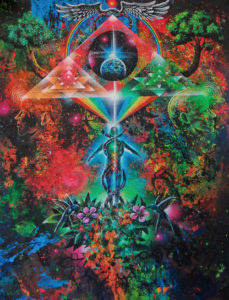 As detailed, there are many different types of psychonauts. Most of the time, psychonauts are self-proclaimed, which would mean that the common consensus for what psychonauts think about hallucinogens might be quite a wide range. There are some people who consider themselves psychonauts who believe that hallucinogenic use is all about having a good time…these psychonauts typically use hallucinogens and psychedelics for recreational purposes. These types of psychonauts are known to use hallucinogens at parties, raves, and social events. Many of them do not think far past the effects themselves, which are pursued for their pleasurable feelings. In other words, a lot of “self-proclaimed psychonauts” think hallucinogens should be experienced for how they make one feel.
As detailed, there are many different types of psychonauts. Most of the time, psychonauts are self-proclaimed, which would mean that the common consensus for what psychonauts think about hallucinogens might be quite a wide range. There are some people who consider themselves psychonauts who believe that hallucinogenic use is all about having a good time…these psychonauts typically use hallucinogens and psychedelics for recreational purposes. These types of psychonauts are known to use hallucinogens at parties, raves, and social events. Many of them do not think far past the effects themselves, which are pursued for their pleasurable feelings. In other words, a lot of “self-proclaimed psychonauts” think hallucinogens should be experienced for how they make one feel.
The type of psychonaut interested in the intellectual development of hallucinogenic drug use and records, details and outlines their experiences seem to meet a more traditional, fundamental sense of the term. These psychonauts typically think much more about the effects of a hallucinogen. They take account of the effects and experiences, and believe that psychedelic drug use is about more than euphoric sensations. Among the many types of effects one may encounter while partaking in psychedelic drug use include: mood enhancing euphoria and exciting colors, psychological changes, and spiritual exploration.
Many psychonauts believe that hallucinogens and psychedelics have the ability to unlock hidden worlds, secrets of the universe, and even prophecy of the future. Many psychonauts believe that psychedelic drug use gives one inability to enter these other worlds, or to reach into the past (or future). There are some psychonauts which believe hallucinogens are secret formulas, almost like a key which allows them special abilities and access to forgotten knowledge. These strongly religious viewpoints are more commonly found among tribes of the world, especially among the ancestors of prominent shaman.
Most psychedelic drug users will describe the experience as powerfully life-changing. Many of them will even go as far to claim it as the most influential, or “greatest experience” of their lives. Most seasoned psychonauts will admit that psychedelic drug use is better when approached with a guide, or someone else who is knowledgeable and can help walk the “traveler” through the experience. After all, most inexperienced psychedelic travelers do not understand when they are peaking, and how to maintain this positive peak, safely, and for as long as possible. With the right attitude, research, and planning, almost all negative experiences can be eliminated.
How to Have a Good Psychedelic Trip
Experienced psychonauts often think a great deal about the setting in which a psychedelic is administered. Some psychedelics are powerful hallucinogens, and whether the psychonaut believes in their sacred or religious values, the drugs still need to be respected in order to yield positive experiences. There are far too many tales of the recreational use of hallucinogens going awry due to inexperienced use and inappropriate setting. There are many examples of amateur psychedelic users throwing themselves from cliffs, driving under the influence, or having seizures (or worse) from flashing lights or perceived threats. An experienced psychonaut consider many variables in selecting an appropriate setting for psychedelic experiences.
An appropriate setting for a psychedelic experience should be relaxed, free of threatening obstacles (even something that could be perceived as a threat when “entering another world”). The best way to think about it is as though one is dreaming. In a dream, real-world sounds (often considered “external stimulation”) can be interpreted much differently. Examples of dangerous external stimulation would include things such as: a lawnmower, a thunderstorm, television, a radio in the background, cars passing by, or any other sound which could be abrupt, loud or perceived as scary in the subconscious. Having someone around can help reduce the external stimulation one might encounter while using hallucinogens. The position in which the psychonaut uses the hallucinogen should be comfortable. Beds, couches, and laying in the leaves, are great examples of places to be for a positive experience (remaining in a controlled environment is important, especially without a guide, and even more so without experience).
Experienced psychonauts also think about nutrition both before and after engaging in psychedelic drug use. A psychonaut should be well nourished, not lacking in any vitamins, and usually have had a light meal of some kind that is agreeable with the psychedelic drug of choice (all before administering the drug). A psychonaut should take care to be well hydrated, as it is much more difficult to remember to and to actually drink throughout a psychedelic experience. It is equally as important to remain hydrated post-experience.
What do Psychonauts Feel When Using Hallucinogens?
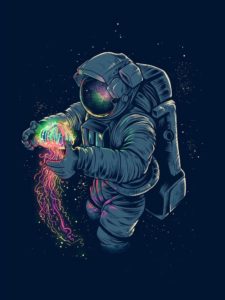 The visual and mood enhancing effects are the most attractive reason for the recreational use of hallucinogens. The visual hallucinations are often colorful, exotic, realistic, geometrical, crystallized, or dream-like in nature. The mood enhancing effects are normally euphoric, and sometimes create immense empathy for others. Psychological changes are often times side effects such as: delirium, psychosis, depression, and other negative effects, which are frequently ignored or go unacknowledged by amateur or “poser” psychonauts. Spiritual exploration is often considered the most important component of psychedelic drug use among “real” psychonauts. Spiritual exploration can include religious prophecy, communication with other worlds and spirits (with ancestors, aliens or gods), a deeper understanding of one’s self and one’s purpose, a more complete understanding of one’s place in the universe, a feeling of connectivity with the world, and a variety of other epiphanies.
The visual and mood enhancing effects are the most attractive reason for the recreational use of hallucinogens. The visual hallucinations are often colorful, exotic, realistic, geometrical, crystallized, or dream-like in nature. The mood enhancing effects are normally euphoric, and sometimes create immense empathy for others. Psychological changes are often times side effects such as: delirium, psychosis, depression, and other negative effects, which are frequently ignored or go unacknowledged by amateur or “poser” psychonauts. Spiritual exploration is often considered the most important component of psychedelic drug use among “real” psychonauts. Spiritual exploration can include religious prophecy, communication with other worlds and spirits (with ancestors, aliens or gods), a deeper understanding of one’s self and one’s purpose, a more complete understanding of one’s place in the universe, a feeling of connectivity with the world, and a variety of other epiphanies.
It is important to remember, that all plants and drugs metabolize in each person at different rates and in different ways. What effects one psychonaut feels, may not be felt at all by another. Sometimes certain hallucinogens may be stronger for one psychonaut been another. There are plenty of hallucinogens which are selective in who they provide visual hallucinations. Similarly, some people are able to have full-blown psychedelic experiences, describing a transformation of the world around them…while others will simply go to sleep after taking the drug.
Obviously, there are some pretty reliable hallucinogens that offer a fairly similar experience to almost all users. For this reason, many aspiring psychonauts seek out the most common hallucinogens: LSD (and LSA), MDMA (ecstasy), mescaline (extracted from cacti like Peyote and San Pedro), and psilocybin (found in many magic mushrooms). Even still, dosages vary from person to person and the most experienced psychedelic user among a group are typically amateurs themselves.
Psychonautic Last Words
It is arguable that a true psychonaut feels more than the average psychedelic drug user, simply because they “explore, rather than tour” psychedelic drugs. Real psychonauts, by definition, are interested in exploring themselves and the way hallucinogens in psychedelic drugs interact with their body and mind. Thus, authentic psychonauts are interested in the spiritual side of themselves and the new worlds psychedelic drugs appear offer. Some psychonauts record their experiences and experiments. Some psychonauts share their experiences and results. In the end, almost all psychonauts are self-proclaimed, and thus, the idea of psychonautic drug use remains as flexible and dynamic as the community of people whom attach themselves to the stigma.

